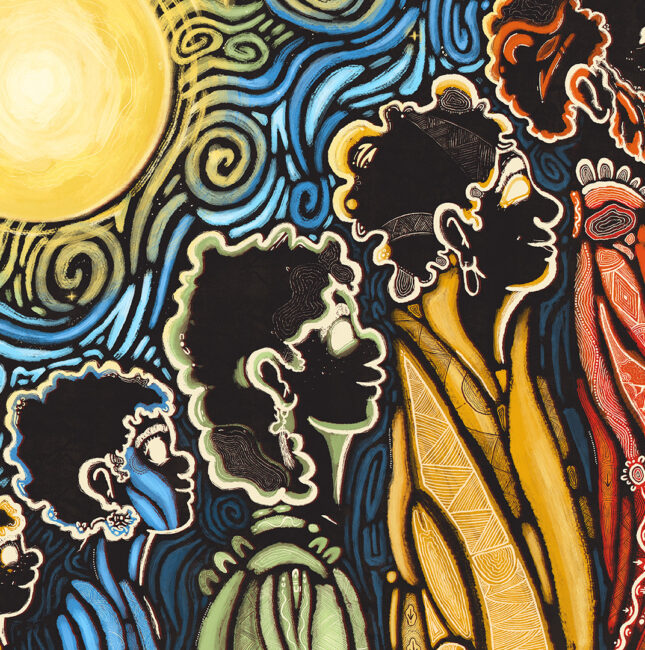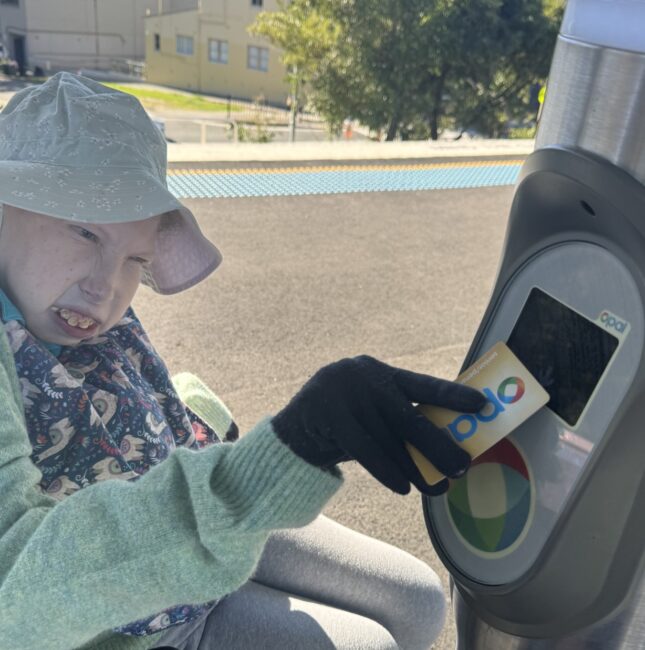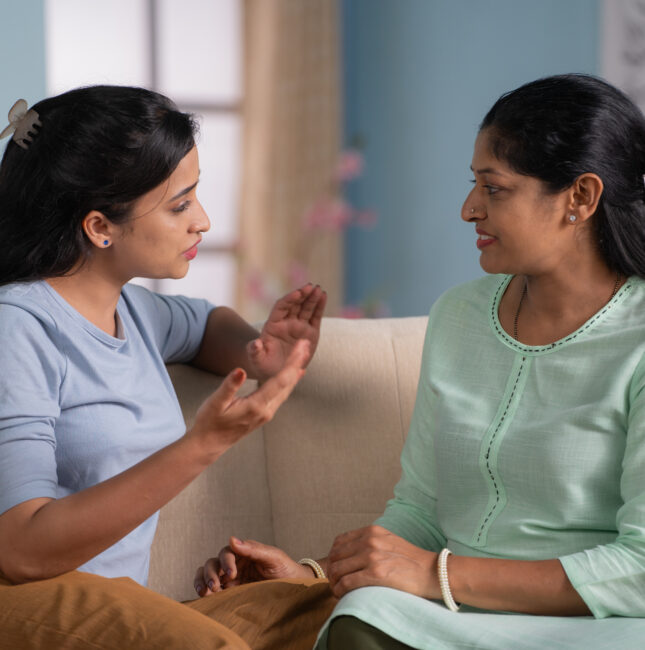Hannah & her family finally have stability
October 25, 2022
In March 2021, life for Hannah and her two children could not have been worse. For 20 years, Hannah had experienced significant domestic family violence from her children’s father, and it was a reality that her children grew to know as normal. Hannah and her 14 year old daughter and 12 year old son lived in constant fear of verbal, financial, emotional and physical abuse.
After intensive support through CatholicCare’s Staying Home, Leaving Violence program, life has changed significantly for Hannah and her family. “The family finally have stability and an intensive support service, so our case plan goals have been achieved,” says Maddy who works as a Senior Caseworker in Domestic and Family Violence. “This happened as a result of the outstanding and consistent casework we provided to the family.”
When the team at CatholicCare first met Hannah, it was clear that her health had been significantly impacted by violence.
“Hannah experienced strangulation and loss of consciousness after being pushed into walls and thrown down the stairs.”
The subsequent spinal damage and exacerbation of Hannah’s acquired brain injury meant that she needed to spend extended periods of time in hospital. To make matters worse, the children’s father would abuse them whenever Hannah was in hospital. “He told the kids that if they told their mother what he did, they would be responsible for the stress that kills her,” Maddy says.
On top of Hannah’s physical health issues, she was in significant financial stress due to years of financial abuse. “The family lost their home due to mortgage arrears, utility and council rates debts of just under $500,000,” Maddy says. “Hannah needed support in accessing legal advice, completing paperwork and undertaking basic tasks. Her CatholicCare Caseworker was able to help Hannah make progress with these tasks, which was often a challenge due to Hannah’s health issues that affected her ability to concentrate. Often, she was unable to get out of bed, which reduced her ability to leave the home and attend appointments.”
Hannah’s son had been diagnosed with Tourettes Syndrome and had symptoms consistent with exposure to trauma, including nightmares and vigilance. Hannah’s daughter presented with suicidal ideation, anxiety and eating disorders. Given the complexities and high support needs, two CatholicCare Caseworkers worked together to support this family. Some of the case plan goals included accessing an Immediate Needs Support Package and recognition payment, counselling for Hannah and the children, practical legal support, financial support (including waiving debts and financial planning), Centrelink support, housing support and assistance with accessing the NDIS. We also linked Hannah in with a financial counsellor who advocated for over $8,000 in debt to be waived for gas and electricity bills.
CatholicCare have played a significant role in advocating for a statutory response to the father’s ongoing violence. “Caseworkers made multiple Risk of Significant Harm (ROSH) reports and continued to advocate with the Department of Communities and Justice (DCJ)” Hannah says.
“We continued to file regular ROSH reports, ensuring that we were reporting adequate information and noting the family’s needs. After ongoing ROSH reporting, DCJ undertook a safety and risk assessment. We were transparent with Hannah about our interactions with DCJ, and she was very understanding and welcoming of the support.”
DCJ have now been involved with the family for two months and have been working in collaboration with CatholicCare. DCJ also identified the need for more intensive support and have referred the family to the Permanency Support Program. This referral has recently been accepted and will provide Hannah and her family with intensive support for up to two years.
Just last month, Hannah and her children moved out of their family home with the support of CatholicCare Caseworkers, and DCJ have arranged temporary accommodation for the family. After CatholicCare advocated with the Department of Housing, the family have been approved for a property, and will move there shortly. Hannah’s husband was charged with the physical assaults against Hannah and the children. “This was a very positive outcome for the children and validating for them,” Maddy says.
It’s been a long journey, but finally Hannah and her children have some semblance of stability. “We will be doing our final home visits within the next two weeks, Maddy says. “This is such a positive outcome for the family.”
For more information about our suite of services click here or call 1800 324 924.
More news stories like this one
NAIDOC Week 2025 – The Next Generation
CatholicCare is proud to celebrate NAIDOC Week y amplifying the voices, stories, and aspirations of Aboriginal & Torres Strait Islander people. This year’s celebrations are all about empowering the next generation of leaders - our young people who carry culture forward with pride, resilience and hope.
Read MoreTrain adventures give participants choice & control
When participants and their parents have their voices heard, wonderful things can happen. The words ‘choice and control’ are bandied about a lot in the disability space, but this story shows how crucial they are to a person’s wellbeing and happiness.
Read MoreDavika emerges from a web of violence
As they grew up, the two friends went their separate ways. Davika had settled into life as a single mum in India, and Priyanka had moved to Australia to marry an Australian man. Life, as Davika knew it, changed forever when Priyanka returned to India for a holiday with her husband and her husband’s Australian brother, Steve.
Read More


